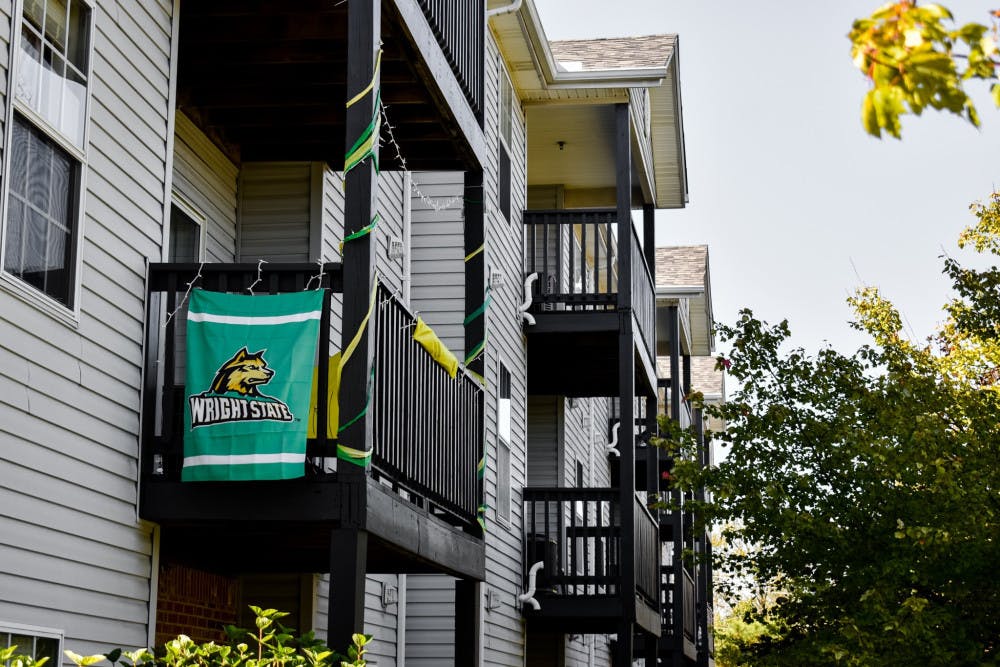Campus Housing | Photo by Christian Peters | The Wright State Guardian
Students wishing to live on campus at Wright State University (WSU) can either live in the dorms or campus apartments, both of which have unique pros and cons.
Dorm living
There are three dorm options: Hamilton Hall, Honors Community and the Woods.
Dylan Wolfe, President of the National Residence Hall Honorary, is a Residential Academic Ambassador (RAA) for the Honors Community Residence Hall.
Each residence hall has two RAAs. The ambassador’s have office hours to assist students academically and are exclusive to the residence halls.
Residential Assistants (RA) are in every building including apartments, except The Village Apartments, to assist residents.
Wolfe has lived in the dorms for about a year and a half.
“I believe living in the dorms allows you to be more connected with your resident assistants. They are there to help you adjust to living away from home. They are also there to help with disputes between residents and any rule violations,” Wolfe said.
Jared Hess, a sophomore English major, is in his first year of living in the dorms.
“The dorms are fairly good quality for the value,” Hess said.
While the overall opinion of the dorms has been good, there have been some recent issues.
“I know that some people complained about some of the maintenance issues in the Honors dorms. They had some issues with these fire alarms randomly going off for about a month,” Hess said.
The developer Crawford-Hoying has committed to remodeling the Honors Community as well as investing in other dorms and apartments.
This recent change has cut housing prices in some dorms and apartments. A super single room in Hamilton Hall in the 2020-2021 school year costs around $6,698 and the same room in the 2021-2022 school year costs around $5,400.
Apartment living
Students can choose between College Park, Forest Lane, University Park and the Village for apartments.
For The Village and other apartments, only students who have lived in housing for two semesters, transfer students, sophomore students or students at least 21 years old are eligible to live there.
The apartments are often the cheaper option for older students. Sierra Ward, a junior transfer student, went to the apartments for this reason.
While the apartments can often be cheaper, it can be harder to meet new people.
“It's easier to make friends and meet people and talk with people, have conversations and actually run into people [in the dorms],” Ward said.
For more information on dorms and apartments and how to apply visit: https://www.wright.edu/residence-life-and-housing









